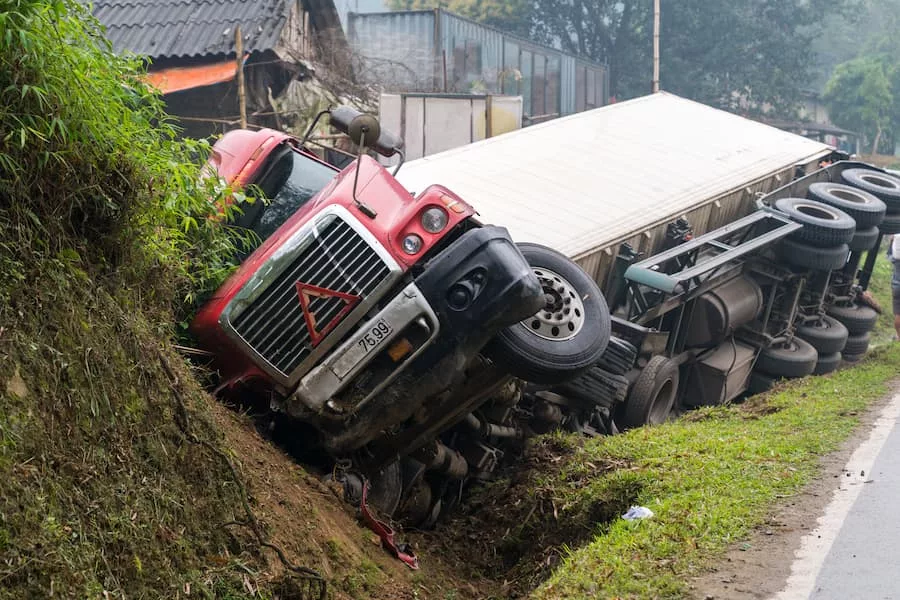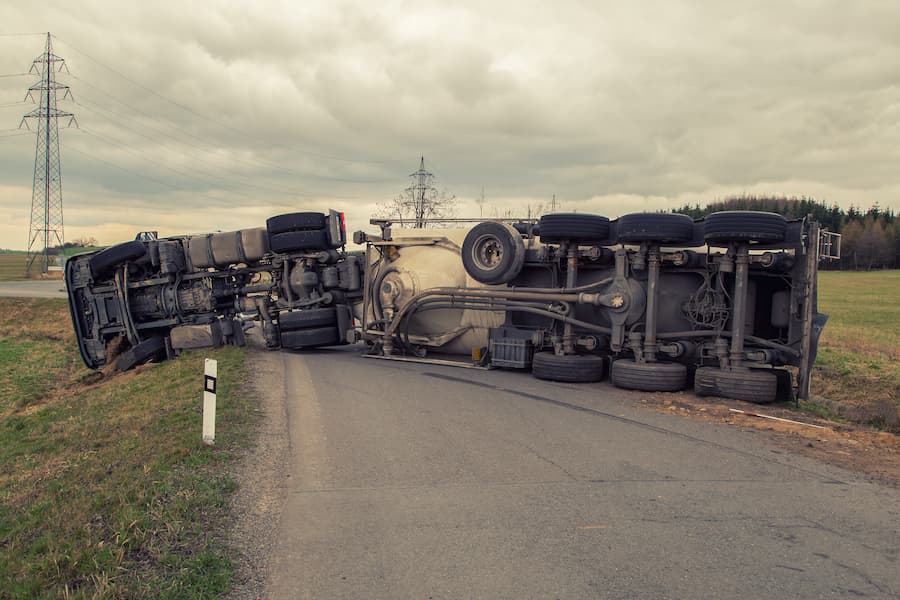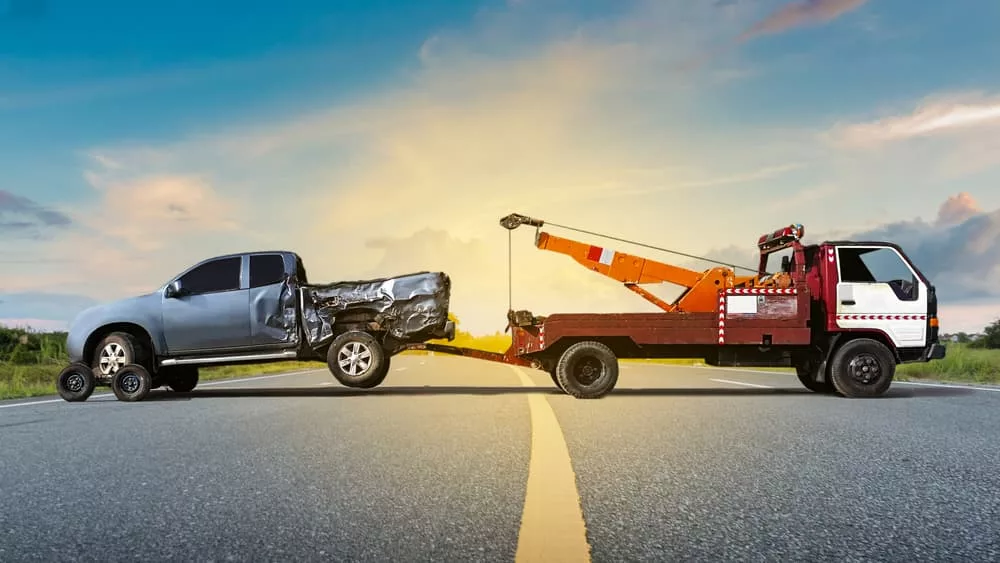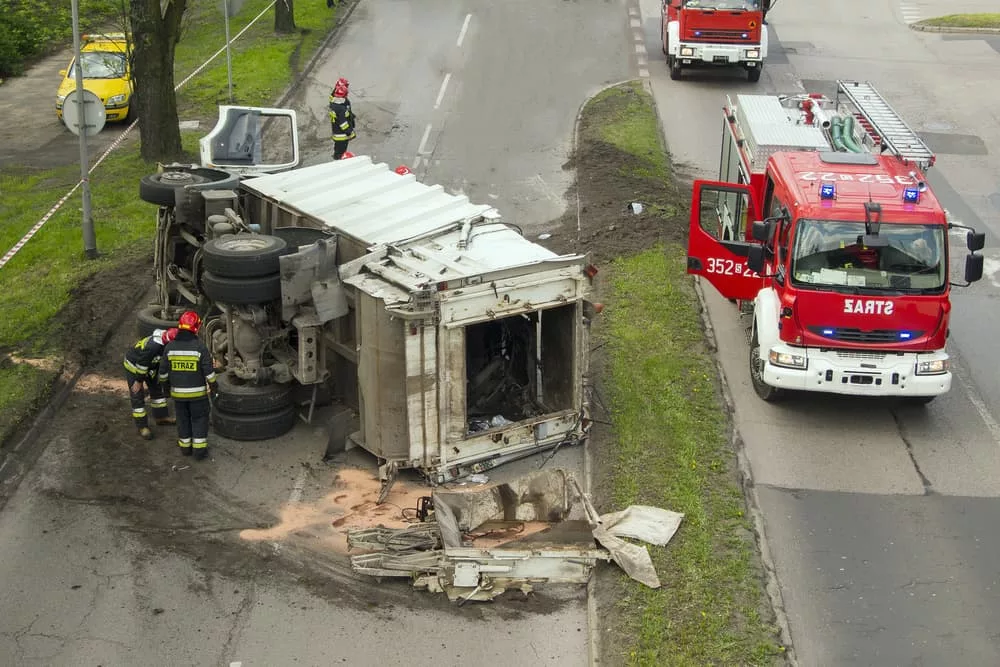How Long Do You Have to File a Claim for a Truck Accident?
After suffering injuries in a truck accident, you may have the right to file a claim to pursue compensation for the expenses and losses you incur because of your injuries. However, you may find it overwhelming to file an insurance claim after an accident while you undergo medical treatment and rehabilitation for your injuries.
But you have only a limited time to file an insurance claim or a lawsuit. You need to know what deadlines may apply to your truck accident case if you want to seek compensation for medical bills, lost wages, and other losses. Continue reading to learn more about types of truck accidents, common injuries from truck crashes, how long you have to file a claim for a truck accident, and what to expect during the claims process. Reach out to a Miami truck accident lawyer.
The Statute of Limitations on Truck Accident Claims
Florida’s statute of limitations on personal injury lawsuits under Florida Statutes Section 95.11 gives you only four years to file a suit to seek compensation in civil court for your injuries and other losses after a truck crash. If you file suit after the statutory four-year deadline, the truck driver, trucking companies, or other at-fault parties can file a motion to dismiss your case. The trial court will likely grant the motion, causing you to lose your opportunity to seek financial relief in civil court.
Who Can You Hold Liable in a Truck Accident Claim?
Because the trucking industry comprises many individuals and businesses, multiple parties could be responsible for a truck accident.
For instance, one or more of the following parties might be liable for your injuries:
- The truck driver
- The trucking company
- The truck’s owner, if different from the truck driver or trucking company
- The freight or cargo company that loaded the truck or trailer
- The truck’s third-party mechanics
- The truck’s manufacturer
- Truck part manufacturers
Common Causes of Truck Accidents
Some of the more frequent causes of truck wrecks include:
- Speeding
- Tailgating or following too closely
- Reckless driving
- Road rage
- Running red lights or stop signs
- Failing to yield the right-of-way
- Unsafe turns or lane changes
- Failing to signal or to check mirrors before changing lanes, turning, or backing up
- Failure to conduct pre-trip vehicle or cargo inspections
- Inadequate truck or trailer maintenance
- Drowsy or fatigued driving
- Driving while intoxicated
- Distracted driving
- Truck driver inexperience
- Improper cargo loading, including overloading the trailer, failing to balance the cargo load, or not securing cargo from shifting
- Truck or auto part defects
Injuries Suffered by Truck Accident Victims
Truck accidents can inflict a wide range of injuries on crash victims, such as:
- Lacerations and abrasions
- Broken bones
- Burns and road rash
- Ligament sprains and muscle or tendon strains
- Herniated disc injuries
- Whiplash
- Nerve damage
- Spinal cord injuries and paralysis
- Internal injuries and bleeding
- Facial injuries
- Vision or hearing damage
- Traumatic brain injuries
- Amputation or limb loss
Common Types of Truck Accidents
Some common truck accidents that we see include:
- Rear end collisions, or a truck colliding into the rear of another vehicle
- Sideswipe collisions, which involve a truck and another vehicle hitting each other on their sides
- Side impact or T bone collisions, which involve a truck colliding head-on into the side of another vehicle
- Head on collisions, which involve frontal impacts between a truck and another vehicle
- Underride collisions, which involve a vehicle getting caught underneath a truck trailer
- Rollover accidents, or an accident in which a truck flips onto its side or roof
- Jackknife accidents, which involve a trailer swinging forward to cause the tractor and trailer to fold in on one another like a folding knife
- Cargo accidents, including crashes caused by unsafe cargo loading or accidents involving cargo falling off a truck
What Steps Do You Need to Take After a Truck Accident?
To protect your rights before filing a truck accident claim:
- Contact law enforcement to report the accident and have an officer come to the scene to prepare a police accident report
- Get the truck driver’s license, registration, employer, and insurance information
- Gather contact information from any eyewitnesses to the crash
- Take photos and videos of the accident scene, including visible injuries you may have suffered, vehicle damages, skid marks, and traffic signs and signals
- See a doctor as soon as possible to get examined for any injuries you suffered in the accident
- Follow your doctor’s treatment instructions
- Keep any bills or invoices of expenses you incurred due to the accident
- Gather copies of your wage or income statements if you miss time from work because of your injuries
- Keep a journal to record the pain and physical difficulties you experience due to your injuries and medical treatment
- Obtain copies of the police accident report and your medical records from the treatment of your injuries
- Avoid posting on social media about the accident or your injuries, as insurers sometimes monitor accident victims’ social media accounts for posts the insurer can use to minimize or deny an injury claim
- Contact a truck accident lawyer soon after the crash to obtain legal representation to protect your interests
The Process Leading up to Filing a Truck Accident Claim
To strengthen your case, your attorney may:
- Investigate the accident to recover evidence and identify which parties have liability for your injuries and losses
- Determine the applicability of any insurance coverage
- Work with accident reconstruction experts to prepare a report to support your claim
- Draft a formal insurance claim or demand letter, which puts the at-fault party or the insurance company on notice of your claim and the amount of compensation you seek to recover
What Makes Truck Accident Claims Different From Other Kinds of Auto Accidents?
Several factors can make a truck accident claim different or more difficult than another auto accident case.
These factors include:
- Truck accidents often cause more severe injuries. A truck’s size and weight result in more violent forces in a collision between the truck and another vehicle. These forces tend to cause more severe injuries for accident victims. If you have suffered catastrophic injuries, it can take longer to pursue compensation because you usually will want to wait to finish your medical treatment before filing your claim. However, if you need to file your claim while treating and rehabbing your injuries, you may have a more extended settlement negotiation period, as you will need to include future anticipated expenses and losses.
- Truck accidents may injure multiple victims. Resolving a truck accident case can also take longer if the crash injures numerous victims. Multiple injured victims increase the risk that the liable parties exhaust their insurance coverage or financial resources paying out settlements and verdicts. Alternatively, responsible parties may insist on negotiating a global settlement with all the injured victims, which can take longer to achieve.
- Multiple parties can have liability for a truck accident. Your attorney must determine who bears liability for the truck accident before starting your compensation claims. However, determining liability for the crash can take longer if multiple parties may have liability for causing the accident. Multiple liability parties complicate the claims process as they shift blame for the crash and financial liability for your injuries and losses onto one another.
- Truck accident claims may involve many more kinds of evidence. Starting your truck accident claim can also take longer if the case involves numerous pieces of evidence. Certain types of evidence, including electronic records, may take time to sift through. You may also need an accident reconstruction expert to review the evidence in your case.
- Trucking companies can have complex insurance coverage. Filing your truck accident claim may also take longer if the trucking companies have complex insurance coverage or corporate structures. Layered insurance policies can make it difficult to determine the amount of coverage available or whether you have received a fair settlement offer. Trucking companies with multiple corporate entities may make it challenging to decide which entities are responsible for the truck accident.
How Long Does a Truck Accident Claim Take to Resolve?
Nobody can say with certainty how long it may take you to recover compensation after a truck accident, but your attorney can give you an estimate.
Different circumstances will affect the timeline of your financial recovery, including:
- The severity of your injuries and any resulting disabilities
- The duration of your medical recovery
- The extent of your financial losses, including car/property damage, medical expenses, and lost wages
- The number of injured victims in the accident
- The number of potentially liable parties
- Whether you may share any fault for the accident
- The availability of insurance coverage and applicable policy limits
- Whether you need to file a lawsuit to pursue your claims against the trucking companies
How Do You Prove Liability for a Truck Accident?
Before you begin a truck accident claim, your attorney will need to gather evidence to help prove the liability of the at-fault truck driver or the trucking company.
Evidence commonly used in truck accident cases includes:
- The truck driver’s hours-of-service (HOS) logs. These logs can help show whether the crash might have occurred due to the truck driver’s fatigue or drowsiness.
- The truck driver’s drug/alcohol screen results. After certain accidents, truck drivers may have to take an alcohol/drug test.
- The truck driver’s cell phone records. These records might show that the driver used their phone in the moments before the crash
- The truck’s event data recorder logs. Some trucks have a black box device that records information about the truck’s operation, such as recorded footage inside the truck cab, the truck’s GPS position, its speed, and the truck driver’s braking, acceleration, or steering.
- The cargo/freight manifest. These records might show whether the truck had an unsafe cargo load.
- The truck driver’s inspection reports and the truck’s maintenance records. These documents can help prove whether the accident occurred due to a mechanical issue caused by inadequate maintenance.
Other valuable evidence for truck accident cases includes:
- Police accident reports
- Trucking company accident/incident reports
- Accident scene photos and videos
- Surveillance/traffic camera footage
- Witness testimony
- Accident reconstruction reports
How Can a Truck Accident Attorney Help You With Your Claim?
A truck accident lawyer can timely file your claims after the accident by:
- Investigating the accident to secure evidence in support of your case
- Requesting documents and other evidence, such as police accident reports, surveillance/traffic camera footage, or your medical records
- Reviewing the evidence to determine the cause of the crash and who you can hold liable for your losses
- Bringing in accident reconstruction, medical, vocational, and financial experts to assist with preparing persuasive arguments for your case
- Documenting your injuries and losses and calculating future expenses or losses
- Ensuring you get access to the medical care you need for your injuries
- Evaluating your legal options for financial recovery, including whether you can file third-party insurance claims or a lawsuit
- Preparing and filing legal or insurance claims on your behalf or taking your case to court, if necessary
Financial Recovery Available in a Truck Accident Claim

All drivers in Florida must carry personal injury protection (PIP) insurance, which covers a portion of the costs of medical expenses and lost wages after auto accidents. However, the minimum amount of PIP coverage the state requires is $10,000, which might not be enough to cover your losses from a truck crash.
Depending on the circumstances, you might file a third-party insurance claim or a lawsuit to pursue financial relief for losses not covered by PIP, including:
- Costs to repair damage to your car or reimbursement of your car’s value if the accident totaled it
- Medical and rehabilitation services, including emergency room and hospital care, surgeries, prescriptions, doctor’s appointments, and physical/occupational therapy
- Long-term care and support for permanent disabilities that result from your injuries
- Lost income from missed work or reduced earnings on light/modified-duty
- Lost future earning potential and job benefits after suffering permanent disability from employment
- Physical pain from your injuries and treatment
- Loss of quality of life and emotional distress
Contact a Miami personal injury attorney to learn more about how much compensation you could seek for your injuries and other losses.






